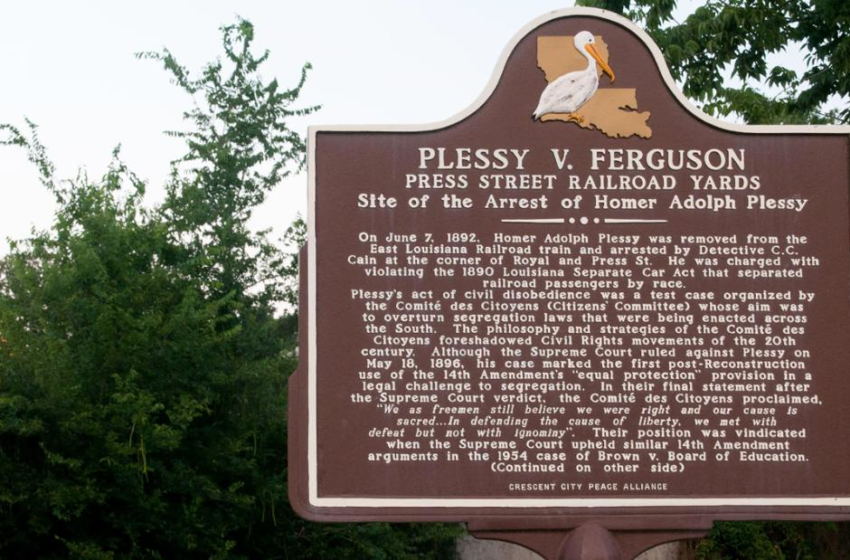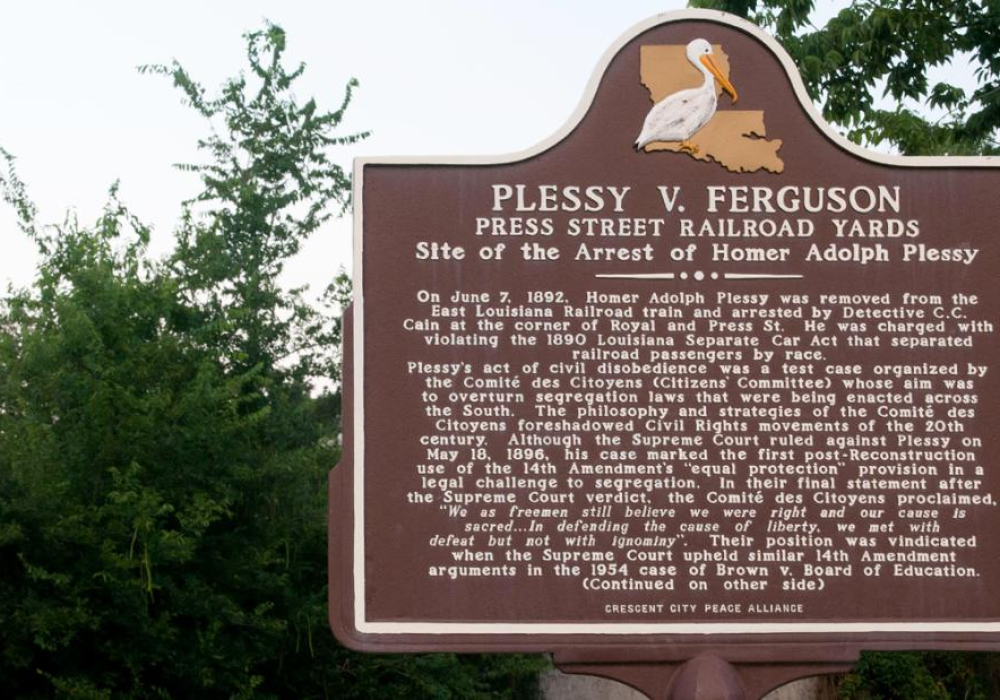Plessy’s case led to the “separate but equal” doctrine and the Jim Crow laws regarding segregation of other public places like parks and restaurants.
On Friday, the Louisiana Board of Pardons on Friday voted unanimously in favor of a pardon for Plessy, who died in his 60’s in 1925. Gov. John Bel Edwards’ signature would make the pardon official.
On June 7, 1892, Plessy, a shoemaker purchased a first-class ticket on a Louisiana train and sat in the Whites-only section. When a conductor ordered him to move to a rail car reserved for Blacks, he refused, was arrested and convicted at a trial of violating the Separate Car Act of 1890.
Plessy, who was one-eighth Black, was not caught off guard: He’d been among a group working with the Eastern Louisiana Railroad Company to protest the state law requiring rail companies to provide “separate but equal” places for white and nonwhite customers, and for patrons to follow suit.
Plessy appealed his case to the Supreme Court. Four years later, the justices rejected his claim.
After that, he lived in New Orleans and worked as a clerk, collection agent for an insurance company, laborer or a warehouse worker. He stayed active in several social organizations.
“We are proud to be a part of the processing of this application under the authority of the Avery C. Alexander Act,” Francis M. Abbott, executive director of the Louisiana Board of Pardons and Committee on Parole, said.
The Avery C. Alexander Act is a Louisiana law which allows the governor to pardon people convicted of violating a state law or local ordinance created to enforce racial separation or discrimination.
The governor will review the recommendation after he returns from traveling, according to Shauna Sanford, the governor’s communications director.
CNN’s Steve Almasy contributed to this report.












